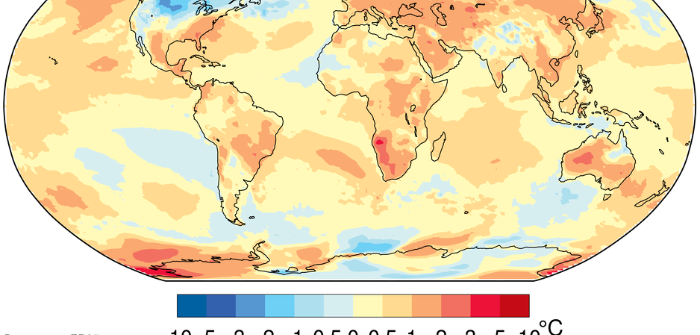Not only will 2019 go down as one of the hottest years on record but it also marks the end of a decade of “exceptional global heat”, according to the WMO.
So far the average global temperature this year has been about 1.1°C above the pre-industrial period putting 2019 on course to be the second or third warmest year on record.
In its provisional statement on the State of the Global Climate, the WMO noted that the unprecedented warming is part of a decade-long trend with average temperatures for the 10-year period from 2010-2019 almost certain to be the highest ever recorded.
The report also noted the extreme impact of carbon emissions on global climate and weather. As concentrations of carbon dioxide in the atmosphere hit record levels of 407.8 parts per million in 2018, sea level rises have accelerated with the melting of the ice sheets in Greenland and Antarctica.
Meanwhile, CO2 absorbed into the oceans has made them 26% more acidic than at the start of the industrial era. The report also noted the massive uptick in extreme weather events around the globe.
The WMO report was compiled using datasets from the US National Oceanic and Atmospheric Administration (NOAA), NASA’s Goddard Institute for Space Studies, and the Met Office’s Hadley Centre and the University of East Anglia’s Climatic Research Unit (CRU) in the UK.
The Met Office and Climatic Research Unit team estimates global temperature using the HadCRUT4 dataset, which is compiled using thousands of air and sea-surface temperature measurements taken across the globe, from all continents and oceans.
Prof. Tim Osborn, CRU director of research, said, “The five warmest years for average global surface temperature since records began in 1850 have all occurred in the last five years; by contrast the five coldest years all occurred before 1912. This is climate change and not a coincidence.”



